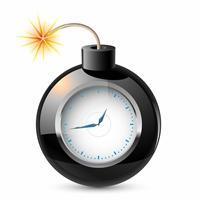
Steamship Mutual
Published: November 01, 2013

In The Owners of the Theresa Libra v The Owners of the MSC Pamela, the Admiralty Court had to decide whether the two-year time bar period stated in section 190 of the Merchant Shipping Act 1995 is still applicable when the parties have concluded a Collision Jurisdiction Agreement on apportionment of liability.
An agreement was reached between solicitors acting for the “Theresa Libra” (“Solicitors A”) and solicitors acting for the “MSC Pamela” (“Solicitors B”). The agreement concluded liability for a collision on the basis that the “MSC Pamela” was 75% to blame for the collision and provided for English law and jurisdiction.
The agreement provided as follows:
“ … The claim of MSC Pamela and Theresa Libra shall, failing agreement, be referred to the Admiralty Registrar, assisted if necessary by experts, to assess the respective claims ... ”
Solicitors A produced their claim and requested Solicitors B to present their claim and costs considering that the “MSC Pamela” would be the net paying party. Solicitors B did not present their claim within the two-year period and alleged that Solicitors A should have initiated proceedings before the second anniversary of the collision pursuant to section 190 of the Merchant Shipping Act; therefore, the claim presented by solicitors for the “Theresa Libra” was time barred.
Solicitors A initiated proceedings over a month later after the expiry of the two years from the date of the collision, applying for an order to stipulate that the claim was not time barred.
The Court concluded that by way of agreeing a Collision Jurisdiction Agreement, the parties assumed an obligation that they “shall pay” the agreed percentage of the other’s claim. This position is inconsistent with an option not to pay in the event that it proves to be the case that the other has not issued a claim form within two years of the date of the collision.
The Merchant Shipping Act 1995 does provide for a two-year time bar, but a shipowner may waive his right to rely upon that time bar and, in the judgment of Teare J, the shipowners in this case did so on 25th October 2012 when each agreed that it “shall pay” the agreed percentage of the other’s claim.
In addition to the application for a time bar, Solicitors A issued an application notice in which, in the alternative to the application of an order that the claim was not time barred, an order that the time for the bringing of proceedings should be extended. Solicitors A also sought permission to add demise charterers as defendants to the claim.
As regards the question of extending time, and despite the fact that owners of “Theresa Libra” did not need an extension of time in light of the construction of the Agreement, the Court considered that under section 190 (5) of the Merchant Shipping Act 1995, there are two separate phases to be analysed. The first stage is to determine whether good reason for an extension of time has been put forward. If so, the second stage is to determine whether, in the exercise of the Court’s discretion, the time for commencing proceedings should be extended.
The Court of Appeal in The Al Tabith said proceedings not being commenced in time merely because of a mistake would not amount to a good reason. Thus, Hirst LJ said that the claimant seeking an extension of time must demonstrate that his failure to commence proceedings within time was not merely due to his own mistake.
Notwithstanding the aforementioned, Teare J found for owners of the “Theresa Libra”, and held inter alia:
“In my judgment it would be unjust and unfair ... if the Owners of THERESA LIBRA, having settled liability well within the two-year limitation period, having secured the agreement of the Owners of MSC PAMELA to pay 75% of their damages and having promptly sought to exchange claims and supporting vouchers with a view to agreeing quantum, should now be unable to enforce the obligation to pay assumed by the Owners of MSC PAMELA. I would therefore have extended time for the commencement of proceedings.”
On the request made by Solicitors A that demise charterers were added to the proceedings, the judge agreed that as the effect of the Settlement Agreement was to preclude the parties to that agreement from relying upon the two-year limitation period provided by section 190 of the Merchant Shipping Act 1995, and considering that the demise charterers were party to the Settlement Agreement, it would be irrational not to allow the demise charterers to be added as a defendant.
The judge held that:
(1) the claim presented by Solicitors A is not time barred;
(2) had it been necessary, an extension would have been granted;
(3) the demise charterers would be added as an additional party to the proceedings.
In reaching this conclusion, the Court confirms that by reaching an agreement the parties assume obligations that may preclude time bar defences.
Notwithstanding the decision, this case highlights the need to be wary of time bars.


